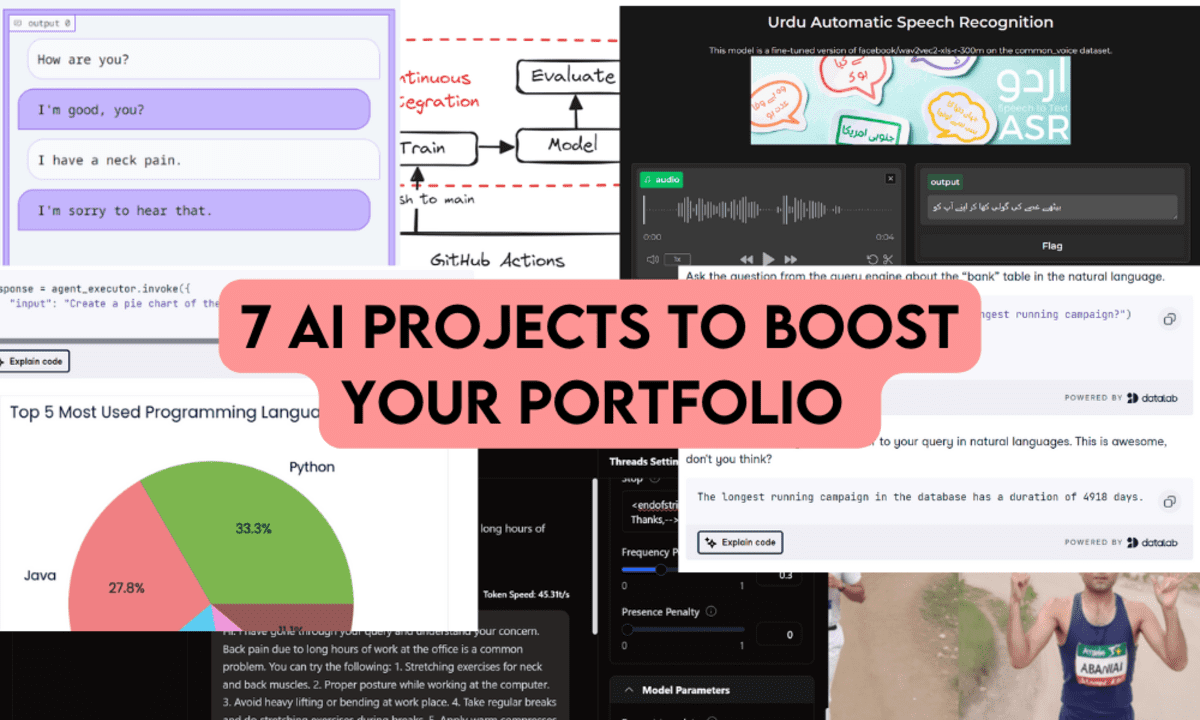
Image by Author
I truly believe that to get hired in the field of artificial intelligence, you need to have a strong portfolio. This means you need to show the recruiters that you can build AI models and applications that solve real-world problems.
In this blog, we will review 7 AI portfolio projects that will boost your resume. These projects come with tutorials, source code, and other supportive materials to help you build proper AI applications.
1. Build and Deploy your Machine Learning Application in 5 Minutes
Project link: Build AI Chatbot in 5 Minutes with Hugging Face and Gradio
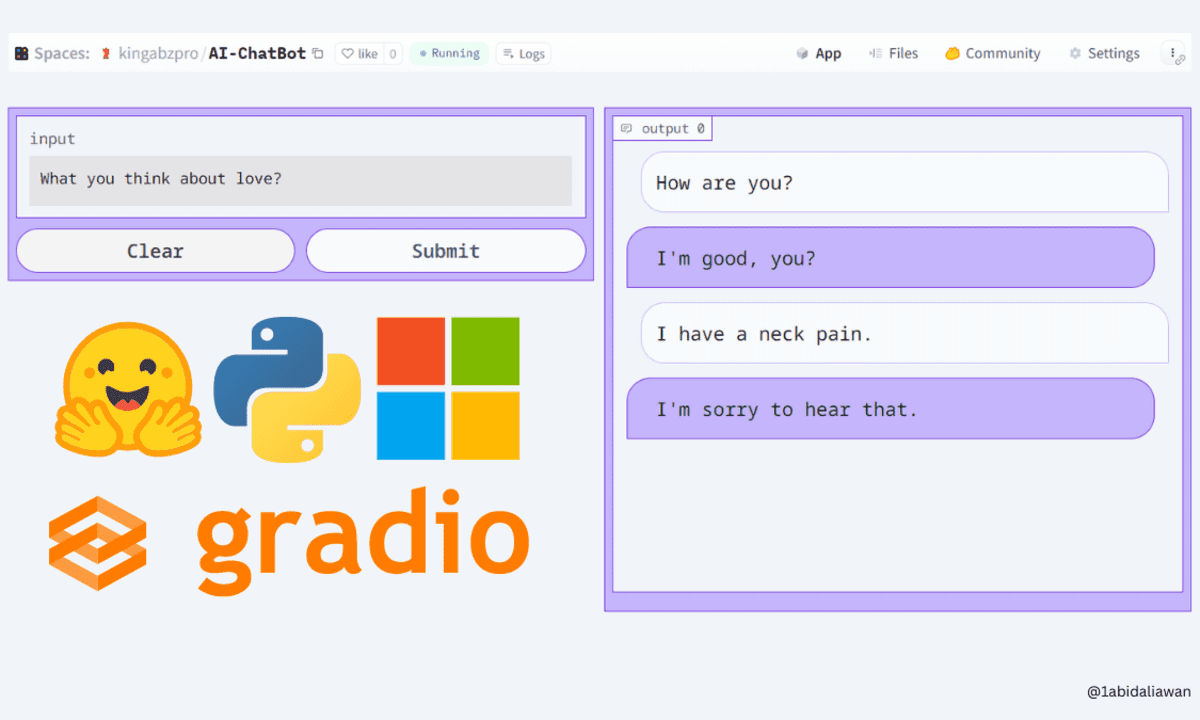
Screenshot from the project
In this project, you will be building a chatbot application and deploying it on Hugging Face spaces. It is a beginner-friendly AI project that requires minimal knowledge of language models and Python. First, you will learn various components of the Gradio Python library to build a chatbot application, and then you will use the Hugging Face ecosystem to load the model and deploy it.
It is that simple.
2. Build AI Projects using DuckDB: SQL Query Engine
Project link: DuckDB Tutorial: Building AI Projects
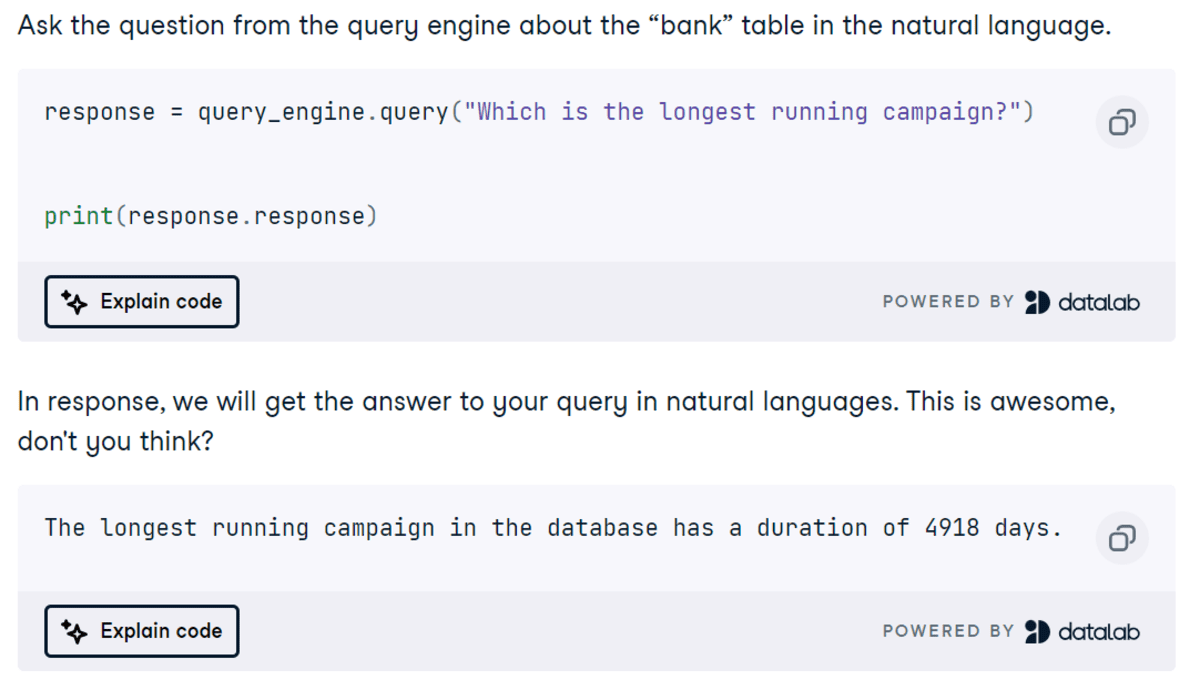
Screenshot from the project
In this project, you will learn to use DuckDB as a vector database for an RAG application and also as an SQL query engine using the LlamaIndex framework. The query will take natural language input, convert it into SQL, and display the result in natural language. It is a simple and straightforward project for beginners, but before you dive into building the AI application, you need to learn a few basics of the DuckDB Python API and the LlamaIndex framework.
3. Building Multiple-step AI Agent using the LangChain and Cohere API
Project link: Cohere Command R+: A Complete Step-by-Step Tutorial
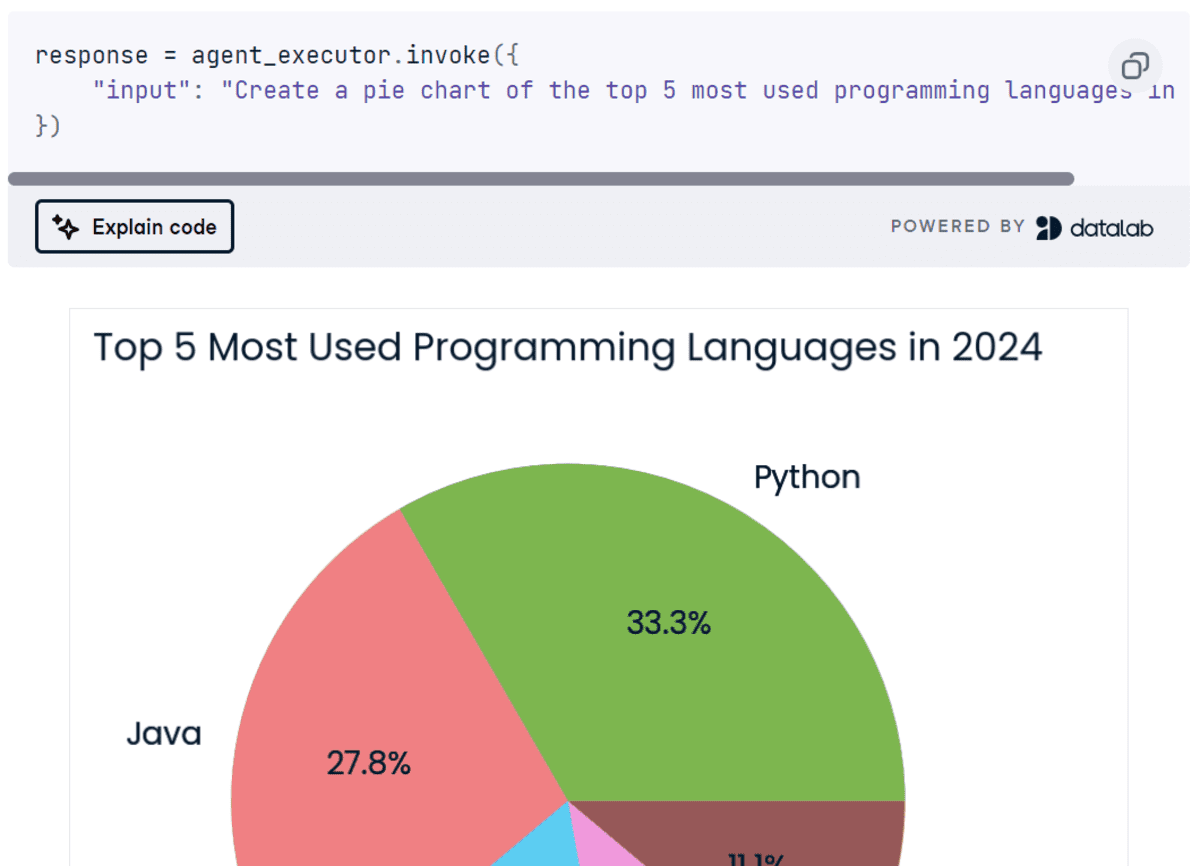
Screenshot from the project
Cohere API is better than OpenAI API in terms of functionality for developing AI applications. In this project, we will explore the various features of Cohere API and learn to create a multi-step AI agent using the LangChain ecosystem and the Command R+ model. This AI application will take the user’s query, search the web using the Tavily API, generate Python code, execute the code using Python REPL, and then return the visualization requested by the user. This is an intermediate-level project for individuals with basic knowledge and interested in building advanced AI applications using the LangChain framework.
4. Fine-Tuning Llama 3 and Using It Locally
Project link: Fine-Tuning Llama 3 and Using It Locally: A Step-by-Step Guide | DataCamp
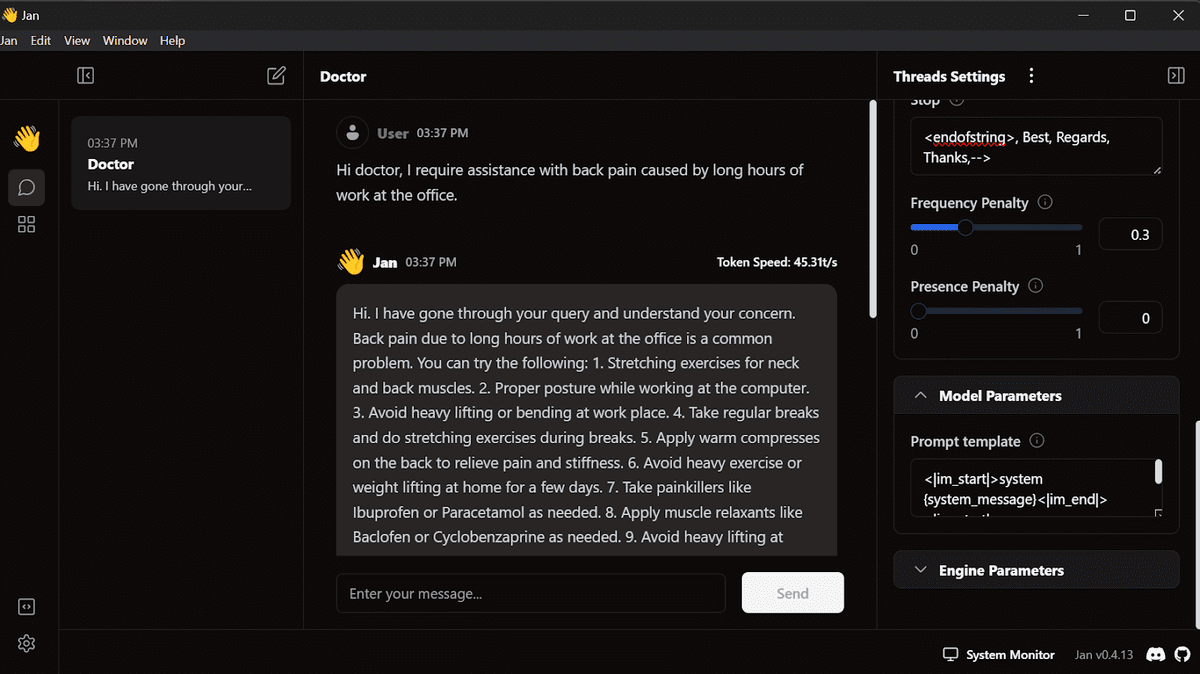
Image from the project
A popular project on DataCamp that will help you fine-tune any model using free resources and convert the model to Llama.cpp format so that it can be used locally on your laptop without the internet. You will first learn to fine-tune the Llama-3 model on a medical dataset, then merge the adapter with the base model and push the full model to the Hugging Face Hub. After that, convert the model files into the Llama.cpp GGUF format, quantize the GGUF model and push the file to Hugging Face Hub. Finally, use the fine-tuned model locally with the Jan application.
5. Multilingual Automatic Speech Recognition
Model Repository: kingabzpro/wav2vec2-large-xls-r-300m-Urdu
Code Repository: kingabzpro/Urdu-ASR-SOTA
Tutorial Link: Fine-Tune XLSR-Wav2Vec2 for low-resource ASR with 🤗 Transformers

Screenshot from kingabzpro/wav2vec2-large-xls-r-300m-Urdu
My most popular project ever! It gets almost half a million downloads every month. I fine-tuned the Wave2Vec2 Large model on an Urdu dataset using the Transformer library. After that, I improved the results of the generated output by integrating the language model.
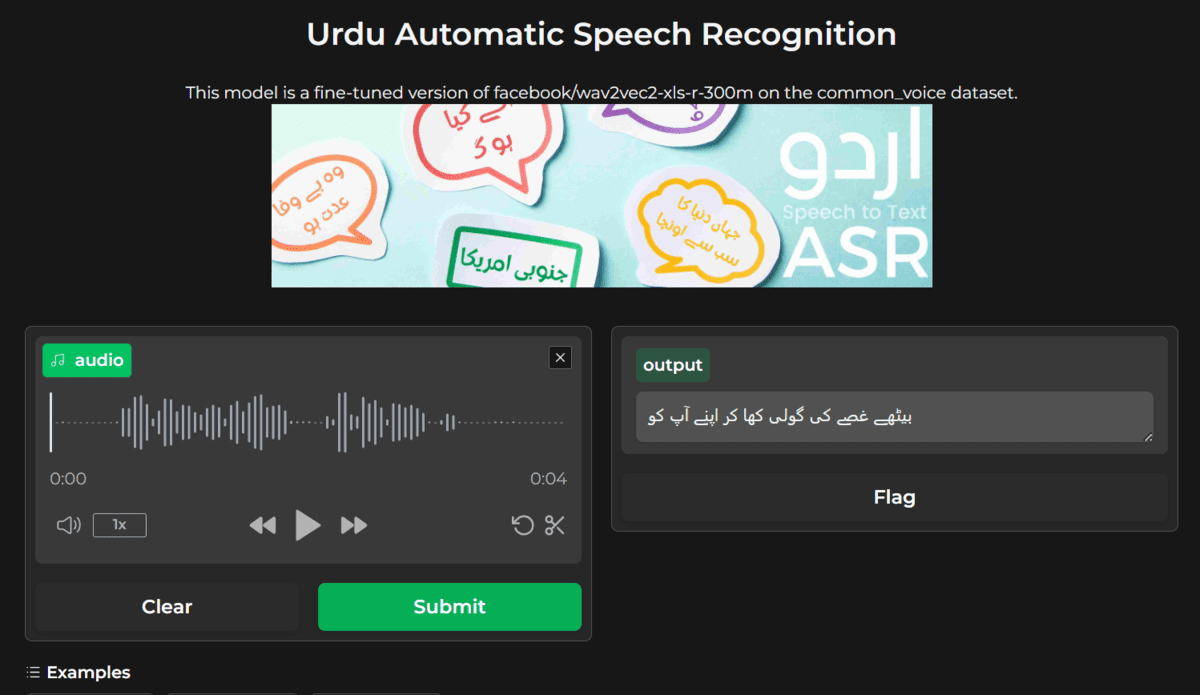
Screenshot from Urdu ASR SOTA – a Hugging Face Space by kingabzpro
In this project, you will fine-tune a speech recognition model in your preferred language and integrate it with a language model to improve its performance. After that, you will use Gradio to build an AI application and deploy it to the Hugging Face server. Fine-tuning is a challenging task that requires learning the basics, cleaning the audio and text dataset, and optimizing the model training.
6. Building CI/CD Workflows for Machine Learning Operations
Project link: A Beginner’s Guide to CI/CD for Machine Learning | DataCamp
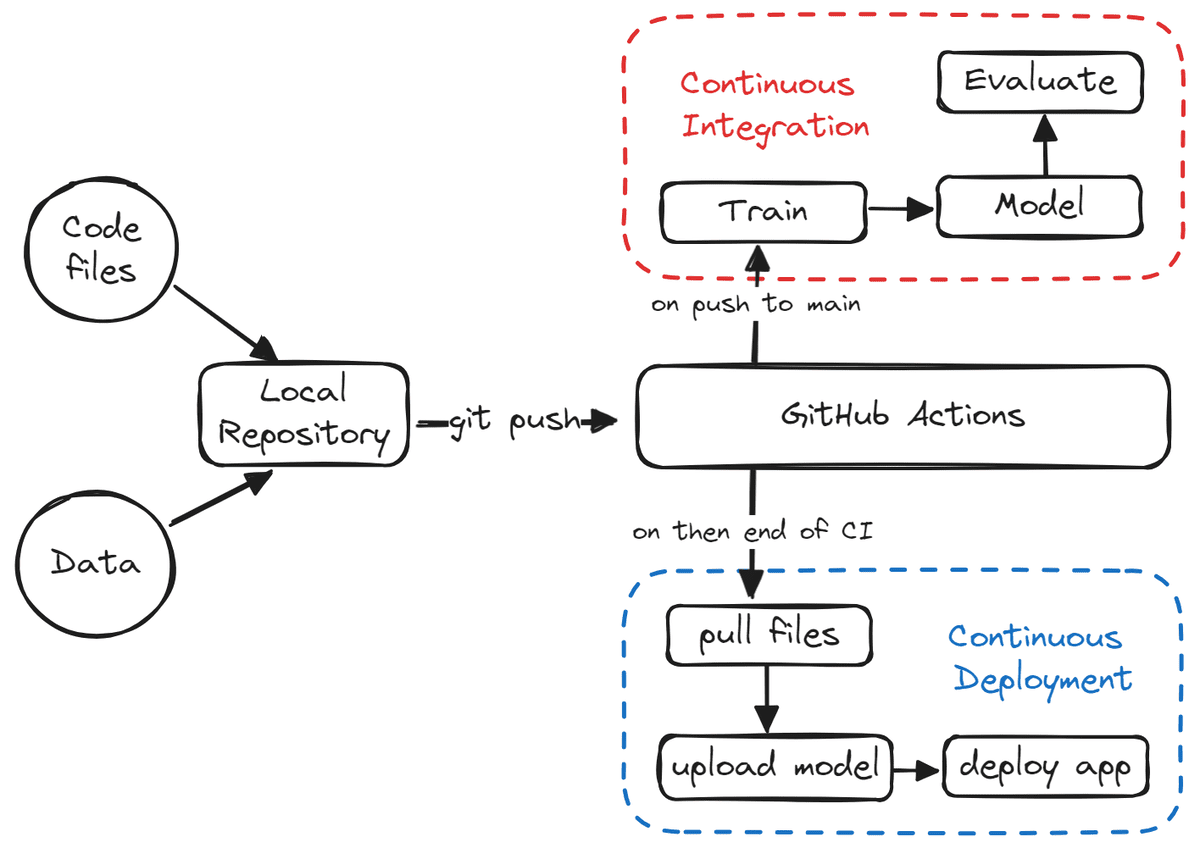
Image from the project
Another popular project on GitHub. It involves building a CI/CD pipeline or machine learning operations. In this project, you will learn about machine learning project templates and how to automate the processes of model training, evaluation, and deployment. You will learn about MakeFile, GitHub Actions, Gradio, Hugging Face, GitHub secrets, CML actions, and various Git operations.
Ultimately, you will build end-to-end machine learning pipelines that will run when new data is pushed or code is updated. It will use new data to retrain the model, generate model evaluations, pull the trained model, and deploy it on the server. It is a fully automated system that generates logs at every step.
7. Fine-tuning Stable Diffusion XL with DreamBooth and LoRA
Project link: Fine-tuning Stable Diffusion XL with DreamBooth and LoRA | DataCamp

Image from the project
We have learned about fine-tuning large language models, but now we will fine-tune a Generative AI model using personal photos. Fine-tuning Stable Diffusion XL requires only a few images and, as a result, you can get optimal results, as shown above.
In this project, you will first learn about Stable Diffusion XL and then fine-tune it on a new dataset using Hugging Face AutoTrain Advance, DreamBooth, and LoRA. You can either use Kaggle for free GPUs or Google Colab. It comes with a guide to help you every step of the way.
Conclusion
All of the projects mentioned in this blog were built by me. I made sure to include a guide, source code, and other supporting materials.
Working on these projects will give you valuable experience and help you build a strong portfolio, which can increase your chances of securing your dream job. I highly recommend everyone to document their projects on GitHub and Medium, and then share them on social media to attract more attention. Keep working and keep building; these experiences can also be added to your resume as a real experience.
Abid Ali Awan (@1abidaliawan) is a certified data scientist professional who loves building machine learning models. Currently, he is focusing on content creation and writing technical blogs on machine learning and data science technologies. Abid holds a Master’s degree in technology management and a bachelor’s degree in telecommunication engineering. His vision is to build an AI product using a graph neural network for students struggling with mental illness.

